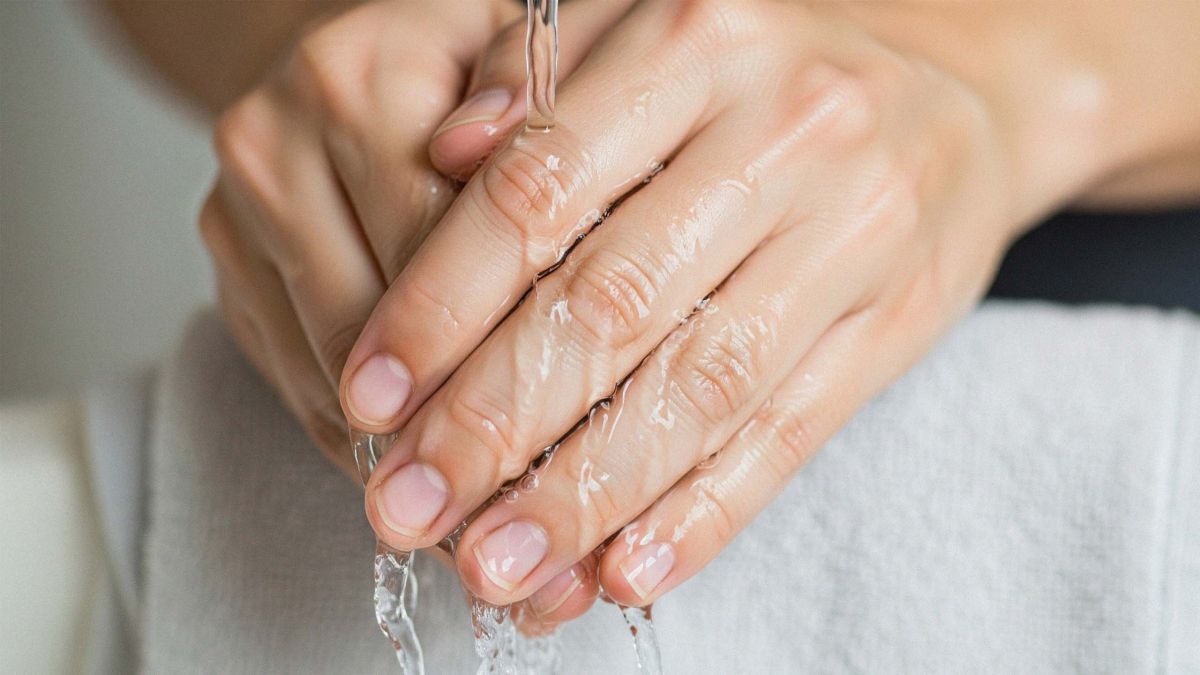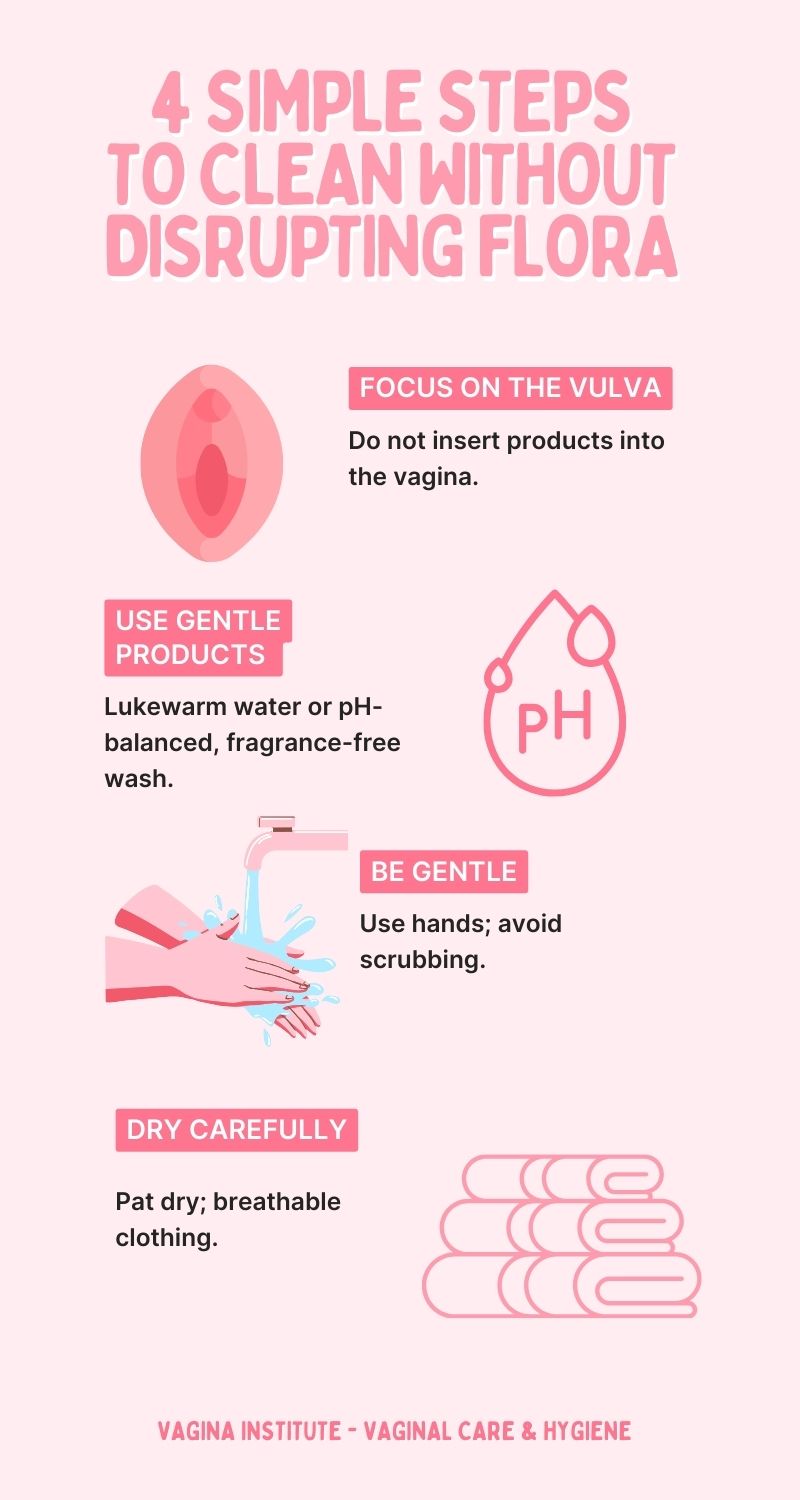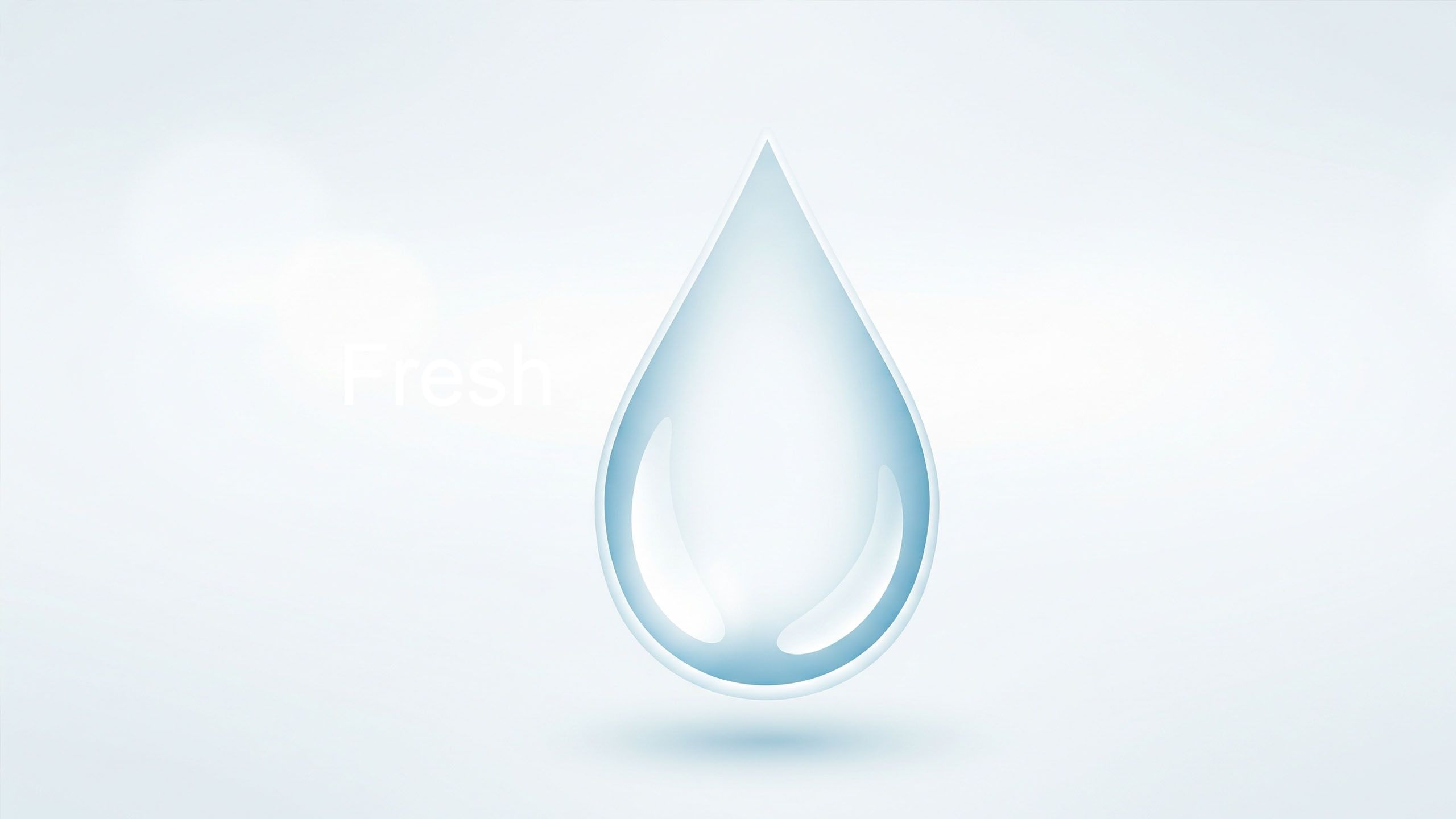How to Clean Without Disrupting Natural Flora: A Practical Guide for Vaginal Health

When it comes to vaginal care, less is often more. The vagina is a self-cleaning organ, designed to maintain its own balance through a complex ecosystem of beneficial bacteria. Overwashing or using the wrong products can upset this balance, leading to irritation or infections.
This guide explains how to keep things fresh and healthy without harming your natural flora.
Why Natural Flora Matters
The vagina is home to trillions of microorganisms, primarily lactobacilli, which help maintain an acidic pH (around 3.8 to 4.5). This acidic environment prevents harmful bacteria and yeast from thriving. Disrupting this ecosystem—whether by harsh soaps, douching, or certain hygiene practices—can lead to bacterial vaginosis, yeast infections, or unpleasant odors.
Key functions of natural flora:
-
Maintains a healthy pH balance
-
Protects against harmful bacteria and yeast
-
Supports overall reproductive health
Common Mistakes to Avoid
Many people unintentionally harm their natural balance in the name of cleanliness. Here are some practices to reconsider:
-
Douching
While it may feel like it cleans deeply, douching actually removes beneficial bacteria and can push harmful bacteria higher into the reproductive tract, increasing the risk of infections. -
Harsh Soaps or Scented Products
Strong cleansers, fragrances, and antibacterial agents strip away protective bacteria and irritate delicate tissues. -
Overwashing
Washing multiple times a day can lead to dryness and irritation. Once a day, or just rinsing with water, is typically sufficient.
Quick Do's & Don'ts
| Do | Don't |
|---|---|
| Wash the vulva with lukewarm water or a mild pH-balanced wash. | Use harsh soaps, perfumed washes, or antibacterial cleansers. |
| Pat dry gently with a soft towel. | Rub vigorously or use rough cloths. |
| Wear breathable fabrics; change out of damp clothing promptly. | Stay in wet/sweaty clothing for long periods. |
| Seek medical advice for strong odor, unusual discharge, or persistent discomfort. | Self-treat persistent or severe symptoms with extra cleaning alone. |
The Right Way to Clean
You don’t need complicated routines. Instead, follow these simple steps:
1. Focus on the Vulva, Not the Vagina
The vagina (internal canal) does not need washing—it cleans itself naturally through secretions. Your attention should be on the vulva, the external area.
2. Use Lukewarm Water and Mild Products
Plain water is often enough. If you prefer using a cleanser, choose a pH-balanced, fragrance-free wash specifically formulated for intimate areas.
3. Gentle Technique
Avoid scrubbing or using rough cloths. Use your hands and rinse thoroughly.
4. Dry Carefully
Pat dry with a soft towel. Avoid vigorous rubbing as it can cause microtears and irritation.

When to Consider Specialized Products
Sometimes, mild discomfort or odor can make you want extra freshness. In such cases:
-
Look for gynecologist-recommended, pH-balanced washes
-
Avoid anything with alcohol, strong perfumes, or antibacterial agents
-
Never insert cleansing products inside the vaginal canal
Signs of Disruption
If you notice these symptoms, your natural flora may be off-balance:
-
Strong or fishy odor
-
Itching or burning sensation
-
Unusual discharge (gray, green, or clumpy white)
In these cases, consult a healthcare professional rather than trying to fix it with more cleaning.
Lifestyle Tips for Healthy Flora
- Opt for underwear-free days when wearing long dresses or skirts, and sleep in the nude. This also promotes air flow and can be more comfortable.
-
Wear breathable cotton underwear
-
Change out of sweaty clothes promptly
-
Maintain a balanced diet rich in probiotics (like yogurt or fermented foods)
-
Stay hydrated
Final Thoughts
The healthiest vaginal care routine is often the simplest. Trust your body’s natural ability to stay balanced, avoid harsh products, and treat your intimate area with gentle care. If something feels off, don’t self-diagnose—professional advice is always the safest choice.
Q & A
Q1: Do I need to wash the inside of my vagina?
A: No. The vagina cleans itself. Focus external cleaning on the vulva only. Avoid inserting cleansers internally.
Q2: Is douching ever OK?
A: Douching is not recommended for routine hygiene because it disrupts beneficial bacteria and can increase infection risk. Only consider it if advised by a clinician for a specific medical reason.
Q3: What kind of soap is safe?
A: If you use soap, choose a mild, fragrance-free, pH-balanced intimate wash or a very mild unscented soap. Plain water is often sufficient.
Q4: How often should I wash the vulva?
A: Once daily is usually enough; more frequent washing can cause dryness or irritation. Rinse after exercise or heavy sweating.
Q5: Can underwear type affect vaginal health?
A: Yes. Breathable fabrics like cotton reduce moisture buildup. Avoid very tight synthetic garments for extended periods.
Q6: Can probiotics help maintain vaginal flora?
A: Some people find dietary probiotics (fermented foods) or specific vaginal probiotics helpful, but evidence varies. Discuss options with your healthcare provider before starting supplements.
Q7: Are wipes OK to use?
A: Occasional use of unscented, alcohol-free gentle wipes is fine, but avoid frequent use of scented or antibacterial wipes which can irritate.
Disclaimer: The articles and information provided by the Vagina Institute are for informational and educational purposes only. This content is not intended to be a substitute for professional medical advice, diagnosis, or treatment. Always seek the advice of your physician or another qualified health provider with any questions you may have regarding a medical condition.


 English
English  Deutsch
Deutsch  Español
Español  Français
Français 





